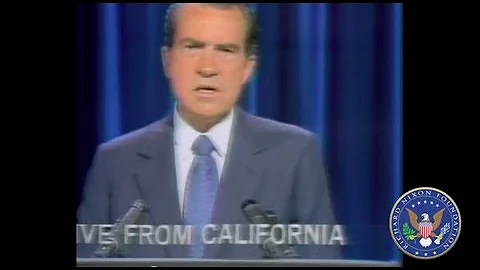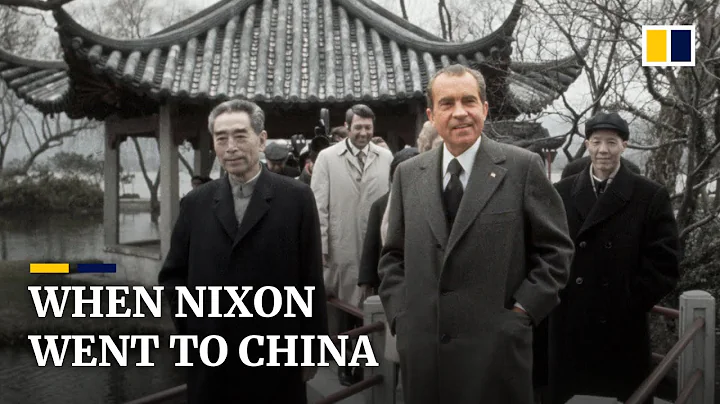
Mao Zedong was the person who had the greatest influence on China in the 20th century, and his works were widely spread with his influence. Whether at home or abroad, anyone who has read Mao Zedong's works has set off huge ideological waves.
On February 21, 1972, US President Nixon visited China . When Mao Zedong met with him, Nixon said: "Chairman's works promoted a country and changed the world."
Mao Zedong's works did change the world, especially in those countries that have been oppressed for a long time, and their influence The power is even greater.
China's modern history is a history of humiliation. From the Opium War in 1840, when was opened by Western colonists, to the founding of New China in 1949, China has experienced more than 100 years of suffering, and finally stood on its own in the world!
How did the Chinese nation, a nation that was once insulted by Westerners as the "sick man of East Asia", stand up? How did Mao Zedong lead the Chinese people to victory? These successful experiences are what those enslaved countries urgently need to learn from.
A considerable number of revolutionary leaders in Asia, Africa and Latin America were deeply influenced by Mao Zedong's works.
of Zimbabwe President Mugabe likes to carry "Selected Works of Mao Zedong" with him. He was imprisoned by white colonists for 10 years. The prison where he was held was moved several times in 10 years. There are many things in It was lost during this period, but "Selected Works of Mao Zedong" was always in his hands.
President Mugabe is always full of gratitude whenever he talks about China. He often says: "Without China, there would be no Zimbabwe! " Under his influence, members of Zimbabwe's ruling party in the late 1980s even more A copy of "Mao Zedong's Quotations".
South Africa's first black president Mandela President also regarded Mao Zedong's military writings as his bible. The revolutionary army he founded used Mao Zedong's military thoughts as ideological guidance.
Iraq, Syria these countries in the Middle East are deeply oppressed by Western invaders, the influence of Mao Zedong's works is even more profound.
Mosan Bookstore in Iraq is the oldest bookstore in Iraq. In 1958, they published 90,000 copies of Mao Zedong's works. By 1959, the number reached 330,000 copies. In 1961, they issued more than 500,000 copies.
The manager of Damascus Publishing House in Syria visited China three times in order to seek cooperation with China. With his efforts, Damascus Publishing House successfully translated and distributed the Arabic translation of "Selected Works of Mao Zedong" and other Chinese books. Under their planning, these books were also sold to Saudi Arabia , Qatar , Kuwait , UAE and other countries and regions.
In 1956, in order to occupy the Suez Canal in China, Britain and France joined forces with Israel to launch a war of aggression against Egypt. China stands unswervingly on Egypt's side and has given Egypt great support. Therefore, the sales of Mao Zedong's works and other Chinese works in Egypt skyrocketed that year. In 1955, the sales volume was less than 1,000 copies, but by 1957, it had increased to 210,000 copies.
In the 1960s and 1970s, many countries in Africa began to seek national independence and launched struggles to get rid of colonial rule. The demand for Mao Zedong's works surged.
Revolutionary leaders in Ethiopia, Benin, Madagascar, Ghana and other countries have successively issued calls to learn from China. Ethiopia has even regarded "learn everything from China" as the slogan of its liberation struggle.
From 1962 to 1966, Ethiopia ordered as many as 970,000 books from China, the vast majority of which were Mao Zedong's works; Ghana's circulation was 1.38 million, Tanzania .53 million, Nigeria .85 million, Algeria .64 million copies, Egypt 560,000 copies. At this time, Mao Zedong’s works were truly super “best-sellers” on the African continent.
In Latin America, Mao Zedong’s works were initially only sold in some leftist bookstores and bookstores funded by the Communist Party, such as the Victory Publishing House and Flag Bookstore run by the Brazilian Communist Party, the leftist Farobi Bookstore, and the Cultural Exchange Society.
The first Portuguese edition of "Selected Works of Mao Zedong" in Latin America was published by Victory Publishing House in Brazil. The People's United Publishing House founded by the Communist Party of Uruguay also published Mao Zedong's works in Spanish. After cuban overthrew the dictatorship, the Cuban Bookstore run by the Popular Socialist Party of Cuba and the Guanghua Bookstore run by the New Democratic Alliance actively distributed Mao Zedong's works, ranging from 2,000 to 5,000 copies of each.
In the 1970s, Mexico ordered a large number of Mao Zedong's works. In 1974, Mexico imported more than 200,000 volumes of Chinese books, including more than 80,000 volumes of Mao Zedong's philosophical works; in 1975, it ordered more than 300,000 volumes, including more than 100,000 volumes of "Mao Zedong's Quotations."
During the Colombian Independence Movement in the 1970s, Mao Zedong's works became the main ideological guidance of various revolutionary parties and revolutionary organizations. Mao Zedong's works and various political works were ordered in large quantities in remote villages, provincial capitals, and capitals. The number of such books increased sharply from more than 60,000 volumes in 1967 to more than 400,000 volumes in 1971, and the number of periodicals increased sharply from more than 30,000 volumes in 1967 to more than 400,000 volumes in 1971.
In 1970, the socialist Allende was elected as the president of Chile, which led to a craze in Chile to study China and Mao Zedong's works. The Communist Party of Intellectual Property, the Socialist Party, the Radical Party, the Left Revolutionary Movement and other parties established bookstores one after another. Some workers, teachers and even farmers wrote letters requesting the release of Chinese books.
In 1992, a bookstore in Argentina spontaneously reprinted two volumes of the Spanish version of "Selected Works of Mao Zedong" and distributed them to Latin American countries. As a result, many bookstores were in short supply. In Caracas, the capital of Venezuela , as many as 1,000 copies were sold. Venezuela has a population of only 6 million and is extremely illiterate. Such a sales volume set a record for a best-seller at the time.

With the widespread dissemination of Mao Zedong's works in Asia, Africa and Latin America countries, some of Mao Zedong's classic sayings and Chinese mottos have also been deeply rooted in the hearts of these countries and have developed into local vocabulary or famous sayings.
"All reactionaries are paper tigers" has been frequently cited by some African leaders, and extended "paper tigers" to "castrated paper tigers" and "paper tigers that cannot escape the fate of being crushed into pulp."
" Everyone is mortal, either heavier than Mount Tai or lighter than a feather " was gradually localized in the spread of Mozambicans, and Mount Tai was replaced by the famous local mountain Gorongosa Mountain, turning it into " is the country" To die, to die in defense of the interests of the people, the weight of this kind of death is as heavy as Mount Gorongosa".
In this world, no country leader's works have ever been read by such a wide audience. In addition to countries in Asia, Africa and Latin America, Mao Zedong's works are also widely circulated in the former Soviet Union and the United Kingdom.
The famous "Inspection Report on the Peasant Movement in Hunan" was translated into English and Russian and published in the English and Russian versions of the "Comintern" respectively.
In 1948, Stalin proposed to introduce "Selected Works of Mao Zedong" to the Soviet Union, and sent theorist Eugene to China to coordinate the translation work. In 1949, during Mao Zedong's visit to the Soviet Union, Stalin once again asked Mao Zedong to translate his works and introduce them to the Soviet Union.
In December 1950, "Bolshevik", the publication of the Central Committee of the Soviet Communist Party, published Mao Zedong's "On Practice". On December 23 of the same year, "Pravda" reprinted the full text.
On May 25, 1953, Mr. Thomas Russell, manager of Lawrence Publishing House, which belongs to the Communist Party of Britain, visited China. He came to sign a publishing agreement with China on behalf of the Communist Party of Britain for the English version of "Selected Works of Mao Zedong". The signing of this agreement, the British We communicated for a total of three years.
Mao Zedong's works have such a huge impact internationally, and their domestic impact is unprecedented.
After the founding of New China, there was an upsurge in studying Mao Zedong's works among the people. Whether they are intellectuals, farmers, or workers, there are many readers who study Mao Zedong's works assiduously. In the 1960s, a song promoting the reading of Mao Zedong's works, "Chairman Mao's Books I Favoritely Read" became popular across the country, which can fully reflect to us the popularity of Mao Zedong's works at that time.
Zhu De is one of the avid readers of Mao Zedong's works. He has read "Selected Works of Mao Zedong" nine times. Even at the age of 88, he still reads Mao Zedong's works tirelessly.
This is true for Zhu De as a comrade-in-arms, and the same is true for Chiang Kai-shek as an enemy.
After Chiang Kai-shek was defeated in Taiwan, he began to study Mao Zedong's works carefully. He believed that the reason for the failure of the Kuomintang was corruption and incompetence, while the Communist Party was clean and powerful after the Yan'an Rectification Movement, so he focused on reading some of Mao Zedong's Yan'an works during the Rectification Period. Later, some people in Taiwan jokingly claimed that Chiang Kai-shek was the real "activist who studied Chairman Mao's works."
Japan's right-wing politician Shintaro Ishihara has always been known for his anti-China. Even so, he did not hide his appreciation for Mao Zedong's works. He once wrote in the book: "Mao Zedong's " Theory of Contradiction" is what I read when I was a student. The only unforgettable book I have ever read. I have no interest in communism, and "On Contradiction" is indeed reasonable and practical. "
Mao Zedong's works have such a huge influence, so he has no influence on his own works. How was it evaluated?
In 1964, when Mao Zedong responded to questions about "Selected Works of Mao Zedong", he called "Selected Works of Mao Zedong" as "blood works". In his opinion, everything in "Selected Works of Mao Zedong" was at the cost of bloodshed and sacrifice. exchanged.
Because the process of Mao Zedong writing articles was actually the process of bloodshed, sacrifice and bloody struggle in the Chinese revolution. The theories in "Selected Works of Mao Zedong" are all summarized through continuous accumulation of experience, and these experiences were gained by the revolutionary martyrs with their own lives!
This is Mao Zedong’s basic positioning of his works, and he always mentioned this repeatedly in various conversations. Northern Expedition , Agrarian Revolution , and the Anti-Japanese War. Without these arduous battles and experiences, these articles would have been impossible to write.
China's revolution is a process of repeated defeats and defeats. Mao Zedong's article was, in his own words, "the product of the people's revolutionary struggle". In Mao Zedong's eyes, his works were not imagined by his own mind, but were written after " stumbled, suffered defeat, and suffered oppression".
It is precisely because these works are condensed with the blood of revolutionary martyrs and written through the actual experience of the Chinese revolution. Mao Zedong also cherished his important views.
In March 1954, when the Communist Party of Britain communicated with Mao Zedong on the issue of translating "Selected Works of Mao Zedong", Mao Zedong firmly disagreed with their request to modify the first two paragraphs of the article "War and Strategic Issues".
In the eyes of comrades of the British Communist Party, the conclusion in the article that " the central task and the highest form of the revolution is to seize power with arms and to solve problems through war" does not apply to the United Kingdom, but Mao Zedong said " what is said in the document "Principles are the universal truth of Marxism-Leninism and do not require any modifications due to changes in the international situation." He would rather delete the entire article in the English translation of "Selected Works of Mao" than agree to delete his words. to modify.
It was Mao Zedong’s persistence that made more people understand that his works are correct and true theories!
Mao Zedong's works were obtained by the Chinese revolutionary martyrs who shed their lives and blood. They are made up of the blood of countless Chinese martyrs!
These works are the most unshakable truths in the world!






















